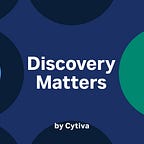World Diabetes Day: 100 years of discovery
Diabetes is on the rise, especially among the young. The number of people under 20 diagnosed with Type 1 diabetes (T1D) rose 21 percent between 2001 and 2009.[1] Experts predict there will be a 144 percent increase in cases by 2050. Globally, 8.9 million live with type 1 diabetes.[2]
100 years on innovation
1922 was the year insulin was discovered by Frederick Banting and Charles Best, and 100 years on insulin production remains of critical importance within the Biopharma industry. It has improved the lives of millions all around the world.
Usable insulin was first made by Frederick Banting and John Macleod at the University of Toronto, two years later, they were awarded the Nobel Prize in Medicine. However, at the time the duo were starting their research, Nicolae Paulescu in Romania had already extracted insulin and was showing its efficacy in reducing hyperglycemia in diabetic dogs. What followed was years of Nobel Prize controversy. Either way, insulin is 100 years old.
Patients diagnosed with diabetes in 1922 was pretty much a death sentence. Today, it’s a disease that can be treated thanks to insulin, and thanks to the science and the technology advances made over the years.
The future of a diabetes vaccine
What better way to celebrate 100 years of insulin than with the CEO of the company who is on the verge of giving us a vaccine for type 1 diabetes?
In 2021, we sat down with Ulf Hannelius, President and CEO of Diamyd Medical, to discuss the published results of DIAGNODE-2, a Phase IIb trial that evaluated intralymphatic administration of Diamyd Medical’s lead drug candidate Diamyd® (GAD-alum) in individuals recently diagnosed with type 1 diabetes (T1D).
We were also joined by Mark A. Atkinson, American Diabetes Association Eminent Scholar, and Anders Ekholm, diabetes patient, parent, and Chairman of the Diabetes Association for Greater Stockholm.
Anders shared his personal story of his daughter’s and his own diagnosis of diabetes and what an insulin vaccine could mean.
Those with T1D cannot produce their own insulin needed to balance blood-sugar levels. For children, regular insulin monitoring can be particularly challenging. For young children, the management of this condition is complicated by their cognitive, behavioral, and social-emotional development.
Globally, more than 1.1 million children and adolescents live with the autoimmune disease T1D.
I strongly encourage you to listen to this episode for World Diabetes Day to learn where we have come from and where we are going.
For more information:
· Listen: ‘One hundred years of insulin and the future diabetes vaccine’
· Read: ‘One hundred years of insulin and the future diabetes vaccine’
